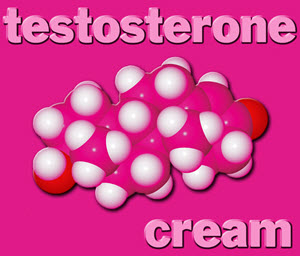Introduction to Testicular Cancer Survivorship
Testicular cancer, while relatively rare, is the most common cancer among young American men aged 15 to 35. The good news is that it is highly treatable, with a survival rate exceeding 95% when detected early. However, life after treatment presents its own set of challenges and adjustments. This article aims to provide American male survivors with insights into managing life post-treatment, focusing on the science of testicular health and overall well-being.
Understanding the Aftermath of Treatment
After successfully battling testicular cancer, survivors often face a range of physical and emotional challenges. Common physical effects include fatigue, changes in sexual function, and potential fertility issues. Emotionally, survivors may experience anxiety, depression, or fear of recurrence. Understanding these effects is crucial for managing them effectively.
From a scientific perspective, the body's response to cancer treatment can lead to hormonal imbalances. For instance, treatments like chemotherapy and radiation can affect the production of testosterone, a hormone vital for maintaining muscle mass, bone density, and sexual health. Regular monitoring of hormone levels and consulting with an endocrinologist can help manage these changes.
Fertility and Family Planning
One of the most significant concerns for testicular cancer survivors is fertility. The treatment can impact sperm production, sometimes leading to temporary or permanent infertility. Before starting treatment, many men opt for sperm banking, a process that preserves sperm for future use. Advances in reproductive technology, such as intracytoplasmic sperm injection (ICSI), have made it possible for many survivors to father children post-treatment.
It's essential for survivors to discuss fertility options with a fertility specialist. Regular follow-ups can help monitor any changes in fertility and guide decisions about family planning. The emotional aspect of fertility issues should not be overlooked, and counseling can provide valuable support during this time.
Maintaining Testicular Health
Post-treatment, maintaining testicular health is paramount. Regular self-exams are recommended to monitor for any changes or abnormalities. While one testicle is usually sufficient for normal hormonal function and fertility, any new lumps or changes should be promptly evaluated by a healthcare provider.
In addition to self-exams, survivors should adhere to a healthy lifestyle, including a balanced diet, regular exercise, and avoiding tobacco and excessive alcohol. These lifestyle choices can significantly impact overall health and well-being, potentially reducing the risk of other health issues.
Psychological Well-being and Support
The psychological impact of surviving testicular cancer cannot be overstated. Many survivors experience a range of emotions, from relief to anxiety about the future. It's important to acknowledge these feelings and seek support when needed. Support groups, whether in-person or online, can provide a sense of community and understanding.
Mental health professionals specializing in cancer survivorship can offer tailored strategies to cope with anxiety, depression, and other emotional challenges. Cognitive-behavioral therapy (CBT) has been shown to be effective in helping survivors manage these issues.
Long-term Monitoring and Follow-up Care
Long-term follow-up care is crucial for testicular cancer survivors. Regular check-ups with an oncologist can help monitor for any signs of recurrence and manage any ongoing effects of treatment. These appointments also provide an opportunity to discuss any new symptoms or concerns.
Survivors should be aware of the potential for late effects of treatment, such as secondary cancers or cardiovascular issues. Staying informed about these risks and maintaining a proactive approach to health can make a significant difference in long-term outcomes.
Conclusion: Embracing Life After Testicular Cancer
Surviving testicular cancer is a testament to resilience and strength. By understanding the scientific aspects of testicular health and embracing a holistic approach to post-treatment life, American male survivors can navigate the challenges ahead with confidence. Regular monitoring, a healthy lifestyle, and emotional support are key components of thriving after cancer. With the right resources and mindset, life after testicular cancer can be fulfilling and rewarding.
Contact Us Today For A Free Consultation

- Stress and Testicular Health: Impacts and Management Strategies for American Men [Last Updated On: March 17th, 2025] [Originally Added On: March 17th, 2025]
- Regular Check-ups: Vital for American Men's Testicular Health and Early Issue Detection [Last Updated On: March 17th, 2025] [Originally Added On: March 17th, 2025]
- Testicular and Prostate Health: Understanding the Vital Connection for Male Wellness [Last Updated On: March 17th, 2025] [Originally Added On: March 17th, 2025]
- Exercise and Its Vital Role in Enhancing Testicular Health in American Males [Last Updated On: March 19th, 2025] [Originally Added On: March 19th, 2025]
- Testicular Health and Hormone Replacement Therapy: A Comprehensive Guide for American Men [Last Updated On: March 20th, 2025] [Originally Added On: March 20th, 2025]
- Economic Burden of Testicular Cancer Treatment on American Males: Direct and Indirect Costs [Last Updated On: March 20th, 2025] [Originally Added On: March 20th, 2025]
- Understanding Testicular Pain: Causes, Diagnosis, and Treatment Options for American Males [Last Updated On: March 20th, 2025] [Originally Added On: March 20th, 2025]
- Testicular Health and Mental Well-being: A Holistic Approach for Men [Last Updated On: March 20th, 2025] [Originally Added On: March 20th, 2025]
- Understanding Testicular Health: Causes, Diagnosis, and Treatment Options for Infertility [Last Updated On: March 20th, 2025] [Originally Added On: March 20th, 2025]
- Smoking's Impact on Testicular Health in American Males: Risks and Prevention [Last Updated On: March 20th, 2025] [Originally Added On: March 20th, 2025]
- Ultrasound: A Key Tool for Diagnosing Testicular Conditions in American Males [Last Updated On: March 21st, 2025] [Originally Added On: March 21st, 2025]
- Educating Young Men on Testicular Health: Importance, Conditions, and Early Detection [Last Updated On: March 21st, 2025] [Originally Added On: March 21st, 2025]
- Diabetes Impact on Testicular Health: Insights for American Men [Last Updated On: March 21st, 2025] [Originally Added On: March 21st, 2025]
- Autoimmune Disorders and Testicular Health: Impacts and Management for American Men [Last Updated On: March 23rd, 2025] [Originally Added On: March 23rd, 2025]
- Testicular Cancer Screening: Guidelines and Importance for Early Detection in Men [Last Updated On: March 23rd, 2025] [Originally Added On: March 23rd, 2025]
- Nutrition and Lifestyle: Keys to American Men's Testicular Health [Last Updated On: March 23rd, 2025] [Originally Added On: March 23rd, 2025]
- Sleep's Vital Role in American Males' Testicular Health and Hormonal Balance [Last Updated On: March 24th, 2025] [Originally Added On: March 24th, 2025]
- Endocrine Disruptors' Impact on Testicular Health: Risks and Mitigation for American Males [Last Updated On: March 24th, 2025] [Originally Added On: March 24th, 2025]
- Testicular Health's Impact on Cardiovascular Disease in American Men: A Holistic View [Last Updated On: March 24th, 2025] [Originally Added On: March 24th, 2025]
- Alcohol's Impact on Testicular Health: Risks and Mitigation Strategies for American Men [Last Updated On: March 24th, 2025] [Originally Added On: March 24th, 2025]
- Environmental Threats to Testicular Health: A Call for American Male Action [Last Updated On: March 25th, 2025] [Originally Added On: March 25th, 2025]
- Breaking Barriers: Enhancing Testicular and Mental Health Awareness in American Males [Last Updated On: March 25th, 2025] [Originally Added On: March 25th, 2025]
- Overcoming Psychological Barriers to Testicular Health Care in American Men [Last Updated On: March 25th, 2025] [Originally Added On: March 25th, 2025]
- Public Health Campaigns Boost Testicular Health Awareness Among American Men [Last Updated On: March 25th, 2025] [Originally Added On: March 25th, 2025]
- Breaking Silence: Enhancing Testicular Health and Mental Well-being in American Men [Last Updated On: March 25th, 2025] [Originally Added On: March 25th, 2025]
- Antioxidants: Key to Enhancing Testicular Health and Fertility in American Men [Last Updated On: March 25th, 2025] [Originally Added On: March 25th, 2025]
- Understanding Testicular Health and Reproductive Rights for American Men [Last Updated On: March 25th, 2025] [Originally Added On: March 25th, 2025]
- Testicular Health and Immune System: A Vital Connection for American Males [Last Updated On: March 25th, 2025] [Originally Added On: March 25th, 2025]
- Anabolic Steroids' Impact on Testicular Health and Fertility in American Men [Last Updated On: March 25th, 2025] [Originally Added On: March 25th, 2025]
- Socioeconomic Factors Impacting Testicular Health Care Access in American Males [Last Updated On: March 25th, 2025] [Originally Added On: March 25th, 2025]
- Telemedicine Revolutionizes Testicular Health Services for American Men [Last Updated On: March 25th, 2025] [Originally Added On: March 25th, 2025]
- Testicular Health: Vital for Men's Well-being and Chronic Disease Prevention [Last Updated On: March 26th, 2025] [Originally Added On: March 26th, 2025]
- Vitamins D, C, E, Folate Boost Testicular Health in American Men [Last Updated On: March 26th, 2025] [Originally Added On: March 26th, 2025]
- Chemotherapy's Impact on Testicular Health and Fertility in American Male Cancer Survivors [Last Updated On: March 26th, 2025] [Originally Added On: March 26th, 2025]
- Lifestyle Diseases and Testicular Health: A Guide for American Men [Last Updated On: March 26th, 2025] [Originally Added On: March 26th, 2025]
- Community Initiatives Boost Testicular Health Awareness in American Males [Last Updated On: March 26th, 2025] [Originally Added On: March 26th, 2025]
- Occupational Hazards and Testicular Health: Risks, Prevention, and Screening for American Workers [Last Updated On: March 26th, 2025] [Originally Added On: March 26th, 2025]
- Radiation Therapy's Impact on Testicular Health: Risks, Management, and Future Hope [Last Updated On: March 26th, 2025] [Originally Added On: March 26th, 2025]
- Genetic Counseling: A Vital Tool in Testicular Cancer Prevention for American Males [Last Updated On: March 27th, 2025] [Originally Added On: March 27th, 2025]
- Testicular Health and Aging: Hormonal Changes, Impacts, and Treatments for American Men [Last Updated On: March 27th, 2025] [Originally Added On: March 27th, 2025]
- Viral Infections and Testicular Health: Impacts and Prevention for American Males [Last Updated On: March 27th, 2025] [Originally Added On: March 27th, 2025]
- Understanding Testicular Health: Impacts on American Men's Psychology and Body Image [Last Updated On: March 27th, 2025] [Originally Added On: March 27th, 2025]
- Testicular Health and Fertility Preservation: A Comprehensive Guide for American Males [Last Updated On: March 27th, 2025] [Originally Added On: March 27th, 2025]
- Heat Exposure Risks to Testicular Health in American Men: Impacts and Mitigation [Last Updated On: March 27th, 2025] [Originally Added On: March 27th, 2025]
- Illicit Drugs' Impact on Testicular Health in American Men: Risks and Prevention [Last Updated On: March 28th, 2025] [Originally Added On: March 28th, 2025]
- Exercise Boosts Testicular Health: Benefits for American Men [Last Updated On: March 28th, 2025] [Originally Added On: March 28th, 2025]
- Managing Chronic Testicular Pain: Strategies for American Men's Health [Last Updated On: March 29th, 2025] [Originally Added On: March 29th, 2025]
- Testicular Health and Cancer Survivorship: Detection, Treatment, and Long-term Care [Last Updated On: March 29th, 2025] [Originally Added On: March 29th, 2025]
- Enhancing Testicular Health Education for American Males: Gaps and Strategies [Last Updated On: March 30th, 2025] [Originally Added On: March 30th, 2025]
- Testicular Cancer: Understanding, Support Groups, and Recovery Benefits [Last Updated On: March 31st, 2025] [Originally Added On: March 31st, 2025]
Word Count: 626





















